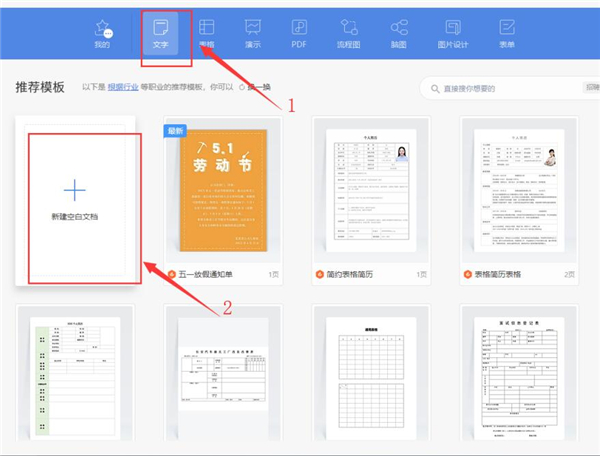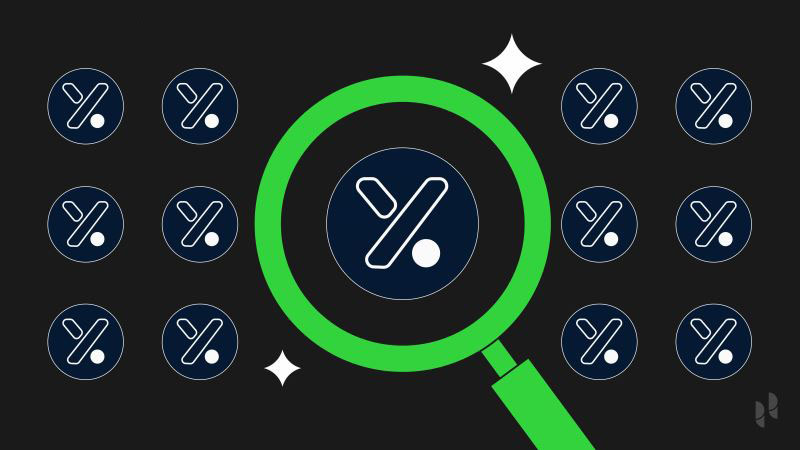php.ini
时间:2006-09-11
来源:互联网
; Examples:
;
; - Show all errors, except for notices and coding standards warnings
;
;error_reporting = E_ALL & ~E_NOTICE & ~E_STRICT
;
; - Show all errors, except for notices
;
;error_reporting = E_ALL & ~E_NOTICE
;
; - Show only errors
;
;error_reporting = E_COMPILE_ERROR|E_ERROR|E_CORE_ERROR
;
; - Show all errors
;
error_reporting = E_ALL
; Print out errors (as a part of the output). For production web sites,
; you're strongly encouraged to turn this feature off, and use error logging
; instead (see below). Keeping display_errors enabled on a production web site
; may reveal security information to end users, such as file paths on your Web
; server, your database schema or other information.
display_errors = Off
; Even when display_errors is on, errors that occur during PHP's startup
; sequence are not displayed. It's strongly recommended to keep
; display_startup_errors off, except for when debugging.
display_startup_errors = Off
; Log errors into a log file (server-specific log, stderr, or error_log (below))
; As stated above, you're strongly advised to use error logging in place of
; error displaying on production web sites.
log_errors = On
; Set maximum length of log_errors. In error_log information about the source is
; added. The default is 1024 and 0 allows to not apply any maximum length at all.
log_errors_max_len = 1024
; Do not log repeated messages. Repeated errors must occur in same file on same
; line until ignore_repeated_source is set true.
ignore_repeated_errors = Off
; Ignore source of message when ignoring repeated messages. When this setting
; is On you will not log errors with repeated messages from different files or
; sourcelines.
ignore_repeated_source = Off
; If this parameter is set to Off, then memory leaks will not be shown (on
; stdout or in the log). This has only effect in a debug compile, and if
; error reporting includes E_WARNING in the allowed list
report_memleaks = On
; Store the last error/warning message in $php_errormsg (boolean).
track_errors = Off
; Disable the inclusion of HTML tags in error messages.
; Note: Never use this feature for production boxes.
;html_errors = Off
; If html_errors is set On PHP produces clickable error messages that direct
; to a page describing the error or function causing the error in detail.
; You can download a copy of the PHP manual from http://www.php.net/docs.php
; and change docref_root to the base URL of your local copy including the
; leading '/'. You must also specify the file extension being used including
; the dot.
; Note: Never use this feature for production boxes.
;docref_root = "/phpmanual/"
;docref_ext = .html
; String to output before an error message.
;error_prepend_string = "<font color=ff0000>"
; String to output after an error message.
;error_append_string = "</font>"
; Log errors to specified file.
;error_log = filename
; Log errors to syslog (Event Log on NT, not valid in Windows 95).
;error_log = syslog
;;;;;;;;;;;;;;;;;
; Data Handling ;
;;;;;;;;;;;;;;;;;
;
; Note - track_vars is ALWAYS enabled as of PHP 4.0.3
; The separator used in PHP generated URLs to separate arguments.
; Default is "&".
;arg_separator.output = "&"
; List of separator(s) used by PHP to parse input URLs into variables.
; Default is "&".
; NOTE: Every character in this directive is considered as separator!
;arg_separator.input = ";&"
; This directive describes the order in which PHP registers GET, POST, Cookie,
; Environment and Built-in variables (G, P, C, E & S respectively, often
; referred to as EGPCS or GPC). Registration is done from left to right, newer
; values override older values.
variables_order = "GPCS"
; Whether or not to register the EGPCS variables as global variables. You may
; want to turn this off if you don't want to clutter your scripts' global scope
; with user data. This makes most sense when coupled with track_vars - in which
; case you can access all of the GPC variables through the $HTTP_*_VARS[],
; variables.
;
; You should do your best to write your scripts so that they do not require
; register_globals to be on; Using form variables as globals can easily lead
; to possible security problems, if the code is not very well thought of.
register_globals = Off
; Whether or not to register the old-style input arrays, HTTP_GET_VARS
; and friends. If you're not using them, it's recommended to turn them off,
; for performance reasons.
register_long_arrays = Off
; This directive tells PHP whether to declare the argv&argc variables (that
; would contain the GET information). If you don't use these variables, you
; should turn it off for increased performance.
register_argc_argv = On
; Maximum size of POST data that PHP will accept.
post_max_size = 8M
; Magic quotes
;
; Magic quotes for incoming GET/POST/Cookie data.
magic_quotes_gpc = Off
; Magic quotes for runtime-generated data, e.g. data from SQL, from exec(), etc.
magic_quotes_runtime = Off
; Use Sybase-style magic quotes (escape ' with '' instead of \').
magic_quotes_sybase = Off
; Automatically add files before or after any PHP document.
auto_prepend_file =
auto_append_file =
; As of 4.0b4, PHP always outputs a character encoding by default in
; the Content-type: header. To disable sending of the charset, simply
; set it to be empty.
;
; PHP's built-in default is text/html
default_mimetype = "text/html"
;default_charset = "iso-8859-1"
; Always populate the $HTTP_RAW_POST_DATA variable.
;always_populate_raw_post_data = On
;;;;;;;;;;;;;;;;;;;;;;;;;
; Paths and Directories ;
;;;;;;;;;;;;;;;;;;;;;;;;;
; UNIX: "/path1:/path2"
;include_path = ".:/php/includes"
;
; Windows: "\path1;\path2"
;include_path = ".;c:\php\includes"
; The root of the PHP pages, used only if nonempty.
; if PHP was not compiled with FORCE_REDIRECT, you SHOULD set doc_root
; if you are running php as a CGI under any web server (other than IIS)
; see documentation for security issues. The alternate is to use the
; cgi.force_redirect configuration below
doc_root =
; The directory under which PHP opens the script using /~username used only
; if nonempty.
user_dir =
; Directory in which the loadable extensions (modules) reside.
;extension_dir = "./"
; Whether or not to enable the dl() function. The dl() function does NOT work
; properly in multithreaded servers, such as IIS or Zeus, and is automatically
; disabled on them.
enable_dl = On
; cgi.force_redirect is necessary to provide security running PHP as a CGI under
; most web servers. Left undefined, PHP turns this on by default. You can
; turn it off here AT YOUR OWN RISK
; **You CAN safely turn this off for IIS, in fact, you MUST.**
; cgi.force_redirect = 1
; if cgi.nph is enabled it will force cgi to always sent Status: 200 with
; every request.
; cgi.nph = 1
; if cgi.force_redirect is turned on, and you are not running under Apache or Netscape
; (iPlanet) web servers, you MAY need to set an environment variable name that PHP
; will look for to know it is OK to continue execution. Setting this variable MAY
; cause security issues, KNOW WHAT YOU ARE DOING FIRST.
; cgi.redirect_status_env = ;
; FastCGI under IIS (on WINNT based OS) supports the ability to impersonate
; security tokens of the calling client. This allows IIS to define the
; security context that the request runs under. mod_fastcgi under Apache
; does not currently support this feature (03/17/2002)
; Set to 1 if running under IIS. Default is zero.
; fastcgi.impersonate = 1;
; cgi.rfc2616_headers configuration option tells PHP what type of headers to
; use when sending HTTP response code. If it's set 0 PHP sends Status: header that
; is supported by Apache. When this option is set to 1 PHP will send
; RFC2616 compliant header.
; Default is zero.
;cgi.rfc2616_headers = 0
;;;;;;;;;;;;;;;;
; File Uploads ;
;;;;;;;;;;;;;;;;
; Whether to allow HTTP file uploads.
file_uploads = On
; Temporary directory for HTTP uploaded files (will use system default if not
; specified).
;upload_tmp_dir =
; Maximum allowed size for uploaded files.
upload_max_filesize = 2M
;;;;;;;;;;;;;;;;;;
; Fopen wrappers ;
;;;;;;;;;;;;;;;;;;
; Whether to allow the treatment of URLs (like http:// or ftp://) as files.
allow_url_fopen = On
; Define the anonymous ftp password (your email address)
;from="[email protected]"
; Define the User-Agent string
; user_agent="PHP"
; Default timeout for socket based streams (seconds)
default_socket_timeout = 60
auto_globals_jit=0
extension_dir="C:\Program Files\Zend\ZendPlatform-2.2.1\lib\php_ext"
; If your scripts have to deal with files from Macintosh systems,
; or you are running on a Mac and need to deal with files from
; unix or win32 systems, setting this flag will cause PHP to
; automatically detect the EOL character in those files so that
; fgets() and file() will work regardless of the source of the file.
; auto_detect_line_endings = Off
;;;;;;;;;;;;;;;;;;;
; Module Settings ;
;;;;;;;;;;;;;;;;;;;
[Syslog]
; Whether or not to define the various syslog variables (e.g. $LOG_PID,
; $LOG_CRON, etc.). Turning it off is a good idea performance-wise. In
; runtime, you can define these variables by calling define_syslog_variables().
define_syslog_variables = Off
[mail function]
; For Win32 only.
SMTP = localhost
smtp_port = 25
;
; - Show all errors, except for notices and coding standards warnings
;
;error_reporting = E_ALL & ~E_NOTICE & ~E_STRICT
;
; - Show all errors, except for notices
;
;error_reporting = E_ALL & ~E_NOTICE
;
; - Show only errors
;
;error_reporting = E_COMPILE_ERROR|E_ERROR|E_CORE_ERROR
;
; - Show all errors
;
error_reporting = E_ALL
; Print out errors (as a part of the output). For production web sites,
; you're strongly encouraged to turn this feature off, and use error logging
; instead (see below). Keeping display_errors enabled on a production web site
; may reveal security information to end users, such as file paths on your Web
; server, your database schema or other information.
display_errors = Off
; Even when display_errors is on, errors that occur during PHP's startup
; sequence are not displayed. It's strongly recommended to keep
; display_startup_errors off, except for when debugging.
display_startup_errors = Off
; Log errors into a log file (server-specific log, stderr, or error_log (below))
; As stated above, you're strongly advised to use error logging in place of
; error displaying on production web sites.
log_errors = On
; Set maximum length of log_errors. In error_log information about the source is
; added. The default is 1024 and 0 allows to not apply any maximum length at all.
log_errors_max_len = 1024
; Do not log repeated messages. Repeated errors must occur in same file on same
; line until ignore_repeated_source is set true.
ignore_repeated_errors = Off
; Ignore source of message when ignoring repeated messages. When this setting
; is On you will not log errors with repeated messages from different files or
; sourcelines.
ignore_repeated_source = Off
; If this parameter is set to Off, then memory leaks will not be shown (on
; stdout or in the log). This has only effect in a debug compile, and if
; error reporting includes E_WARNING in the allowed list
report_memleaks = On
; Store the last error/warning message in $php_errormsg (boolean).
track_errors = Off
; Disable the inclusion of HTML tags in error messages.
; Note: Never use this feature for production boxes.
;html_errors = Off
; If html_errors is set On PHP produces clickable error messages that direct
; to a page describing the error or function causing the error in detail.
; You can download a copy of the PHP manual from http://www.php.net/docs.php
; and change docref_root to the base URL of your local copy including the
; leading '/'. You must also specify the file extension being used including
; the dot.
; Note: Never use this feature for production boxes.
;docref_root = "/phpmanual/"
;docref_ext = .html
; String to output before an error message.
;error_prepend_string = "<font color=ff0000>"
; String to output after an error message.
;error_append_string = "</font>"
; Log errors to specified file.
;error_log = filename
; Log errors to syslog (Event Log on NT, not valid in Windows 95).
;error_log = syslog
;;;;;;;;;;;;;;;;;
; Data Handling ;
;;;;;;;;;;;;;;;;;
;
; Note - track_vars is ALWAYS enabled as of PHP 4.0.3
; The separator used in PHP generated URLs to separate arguments.
; Default is "&".
;arg_separator.output = "&"
; List of separator(s) used by PHP to parse input URLs into variables.
; Default is "&".
; NOTE: Every character in this directive is considered as separator!
;arg_separator.input = ";&"
; This directive describes the order in which PHP registers GET, POST, Cookie,
; Environment and Built-in variables (G, P, C, E & S respectively, often
; referred to as EGPCS or GPC). Registration is done from left to right, newer
; values override older values.
variables_order = "GPCS"
; Whether or not to register the EGPCS variables as global variables. You may
; want to turn this off if you don't want to clutter your scripts' global scope
; with user data. This makes most sense when coupled with track_vars - in which
; case you can access all of the GPC variables through the $HTTP_*_VARS[],
; variables.
;
; You should do your best to write your scripts so that they do not require
; register_globals to be on; Using form variables as globals can easily lead
; to possible security problems, if the code is not very well thought of.
register_globals = Off
; Whether or not to register the old-style input arrays, HTTP_GET_VARS
; and friends. If you're not using them, it's recommended to turn them off,
; for performance reasons.
register_long_arrays = Off
; This directive tells PHP whether to declare the argv&argc variables (that
; would contain the GET information). If you don't use these variables, you
; should turn it off for increased performance.
register_argc_argv = On
; Maximum size of POST data that PHP will accept.
post_max_size = 8M
; Magic quotes
;
; Magic quotes for incoming GET/POST/Cookie data.
magic_quotes_gpc = Off
; Magic quotes for runtime-generated data, e.g. data from SQL, from exec(), etc.
magic_quotes_runtime = Off
; Use Sybase-style magic quotes (escape ' with '' instead of \').
magic_quotes_sybase = Off
; Automatically add files before or after any PHP document.
auto_prepend_file =
auto_append_file =
; As of 4.0b4, PHP always outputs a character encoding by default in
; the Content-type: header. To disable sending of the charset, simply
; set it to be empty.
;
; PHP's built-in default is text/html
default_mimetype = "text/html"
;default_charset = "iso-8859-1"
; Always populate the $HTTP_RAW_POST_DATA variable.
;always_populate_raw_post_data = On
;;;;;;;;;;;;;;;;;;;;;;;;;
; Paths and Directories ;
;;;;;;;;;;;;;;;;;;;;;;;;;
; UNIX: "/path1:/path2"
;include_path = ".:/php/includes"
;
; Windows: "\path1;\path2"
;include_path = ".;c:\php\includes"
; The root of the PHP pages, used only if nonempty.
; if PHP was not compiled with FORCE_REDIRECT, you SHOULD set doc_root
; if you are running php as a CGI under any web server (other than IIS)
; see documentation for security issues. The alternate is to use the
; cgi.force_redirect configuration below
doc_root =
; The directory under which PHP opens the script using /~username used only
; if nonempty.
user_dir =
; Directory in which the loadable extensions (modules) reside.
;extension_dir = "./"
; Whether or not to enable the dl() function. The dl() function does NOT work
; properly in multithreaded servers, such as IIS or Zeus, and is automatically
; disabled on them.
enable_dl = On
; cgi.force_redirect is necessary to provide security running PHP as a CGI under
; most web servers. Left undefined, PHP turns this on by default. You can
; turn it off here AT YOUR OWN RISK
; **You CAN safely turn this off for IIS, in fact, you MUST.**
; cgi.force_redirect = 1
; if cgi.nph is enabled it will force cgi to always sent Status: 200 with
; every request.
; cgi.nph = 1
; if cgi.force_redirect is turned on, and you are not running under Apache or Netscape
; (iPlanet) web servers, you MAY need to set an environment variable name that PHP
; will look for to know it is OK to continue execution. Setting this variable MAY
; cause security issues, KNOW WHAT YOU ARE DOING FIRST.
; cgi.redirect_status_env = ;
; FastCGI under IIS (on WINNT based OS) supports the ability to impersonate
; security tokens of the calling client. This allows IIS to define the
; security context that the request runs under. mod_fastcgi under Apache
; does not currently support this feature (03/17/2002)
; Set to 1 if running under IIS. Default is zero.
; fastcgi.impersonate = 1;
; cgi.rfc2616_headers configuration option tells PHP what type of headers to
; use when sending HTTP response code. If it's set 0 PHP sends Status: header that
; is supported by Apache. When this option is set to 1 PHP will send
; RFC2616 compliant header.
; Default is zero.
;cgi.rfc2616_headers = 0
;;;;;;;;;;;;;;;;
; File Uploads ;
;;;;;;;;;;;;;;;;
; Whether to allow HTTP file uploads.
file_uploads = On
; Temporary directory for HTTP uploaded files (will use system default if not
; specified).
;upload_tmp_dir =
; Maximum allowed size for uploaded files.
upload_max_filesize = 2M
;;;;;;;;;;;;;;;;;;
; Fopen wrappers ;
;;;;;;;;;;;;;;;;;;
; Whether to allow the treatment of URLs (like http:// or ftp://) as files.
allow_url_fopen = On
; Define the anonymous ftp password (your email address)
;from="[email protected]"
; Define the User-Agent string
; user_agent="PHP"
; Default timeout for socket based streams (seconds)
default_socket_timeout = 60
auto_globals_jit=0
extension_dir="C:\Program Files\Zend\ZendPlatform-2.2.1\lib\php_ext"
; If your scripts have to deal with files from Macintosh systems,
; or you are running on a Mac and need to deal with files from
; unix or win32 systems, setting this flag will cause PHP to
; automatically detect the EOL character in those files so that
; fgets() and file() will work regardless of the source of the file.
; auto_detect_line_endings = Off
;;;;;;;;;;;;;;;;;;;
; Module Settings ;
;;;;;;;;;;;;;;;;;;;
[Syslog]
; Whether or not to define the various syslog variables (e.g. $LOG_PID,
; $LOG_CRON, etc.). Turning it off is a good idea performance-wise. In
; runtime, you can define these variables by calling define_syslog_variables().
define_syslog_variables = Off
[mail function]
; For Win32 only.
SMTP = localhost
smtp_port = 25
作者: qianshuei 发布时间: 2006-09-10
相关阅读 更多
热门阅读
-
 office 2019专业增强版最新2021版激活秘钥/序列号/激活码推荐 附激活工具
office 2019专业增强版最新2021版激活秘钥/序列号/激活码推荐 附激活工具
阅读:74
-
 如何安装mysql8.0
如何安装mysql8.0
阅读:31
-
 Word快速设置标题样式步骤详解
Word快速设置标题样式步骤详解
阅读:28
-
 20+道必知必会的Vue面试题(附答案解析)
20+道必知必会的Vue面试题(附答案解析)
阅读:37
-
 HTML如何制作表单
HTML如何制作表单
阅读:22
-
 百词斩可以改天数吗?当然可以,4个步骤轻松修改天数!
百词斩可以改天数吗?当然可以,4个步骤轻松修改天数!
阅读:31
-
 ET文件格式和XLS格式文件之间如何转化?
ET文件格式和XLS格式文件之间如何转化?
阅读:24
-
 react和vue的区别及优缺点是什么
react和vue的区别及优缺点是什么
阅读:121
-
 支付宝人脸识别如何关闭?
支付宝人脸识别如何关闭?
阅读:21
-
 腾讯微云怎么修改照片或视频备份路径?
腾讯微云怎么修改照片或视频备份路径?
阅读:28















